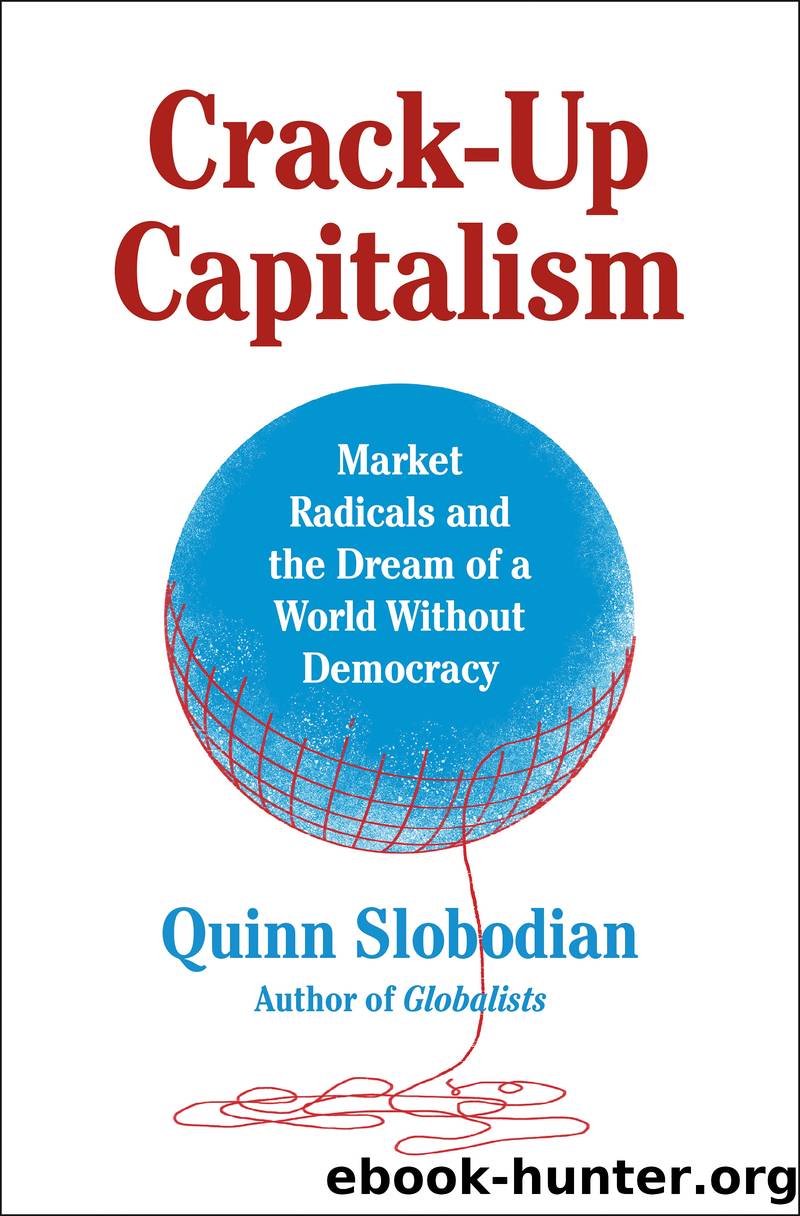Crack-Up Capitalism by Quinn Slobodian

Author:Quinn Slobodian
Language: eng
Format: epub
Publisher: Henry Holt and Co.
10
Silicon Valley Colonialism
Honduras
In 2009, a Stanford economics professor named Paul Romer gave a talk on reviving colonialism. He asked the following: Why had some countries grown rich while some remained poor? It was not just about having the right location or the right natural resources, he said. It was about something more intangible: the right set of rules. Rules meant the laws that set tax rates, regulated labor, and protected property. They also meant the overall style of government. At a deeper level, rules were cultural norms, values, and beliefs. They were the way we were made to behave, but also the way we behaved without thinking. The history of capitalism was a history of struggle among rules. The nations with the best rules won.
Hong Kongâa scrap of coastline organized under different rules than the adjacent mainland since the nineteenth centuryâwas Romerâs prime example. When China imported the Hong Kong model to the Pearl River Delta in the late 1970s, he said, a âprocess of copyingâ helped China begin catching up to the West. Romer waved away objections that Hong Kong was undemocratic. Until the handover, the colonyâs governor was appointed by the UK parliament, which was elected by British voters. Hong Kong was a democracyââit just happened to be not a democracy that involved the local residents.â As for the Opium Warsâthe violence that had made the whole thing possibleâRomer insisted they were incidental. In his telling, Hong Kong got to where it was because of the âhistorical accidentâ of being colonized by the British.1
How could such historical accidents be made to happen again? The shortcut to Hong Kong that Romer offered was called the charter city. The formula: persuade poor nations to surrender patches of uninhabited territory to be managed by richer ones. Pollinate the empty land with rules known to make capitalism work and watch it grow. This would be colonialism by consent, occupation by invitation. Using the jargon of Silicon Valley, he called them âstart-up political jurisdictions.â2 Charter cities could happen anywhere. Displaying a nighttime map of Africa unlit by artificial light, he pointed out the âenormous amount of land on earth thatâs very underutilized.â3 Leaders only had to face the fact that sovereignty under conditions of globalization was already moot. Why not go all the way and give over your country to external management? You had nothing to lose and Hong Kong to gain.
Download
This site does not store any files on its server. We only index and link to content provided by other sites. Please contact the content providers to delete copyright contents if any and email us, we'll remove relevant links or contents immediately.
International Integration of the Brazilian Economy by Elias C. Grivoyannis(111059)
The Radium Girls by Kate Moore(12028)
Turbulence by E. J. Noyes(8049)
Nudge - Improving Decisions about Health, Wealth, and Happiness by Thaler Sunstein(7707)
The Black Swan by Nassim Nicholas Taleb(7129)
Rich Dad Poor Dad by Robert T. Kiyosaki(6632)
Pioneering Portfolio Management by David F. Swensen(6301)
Man-made Catastrophes and Risk Information Concealment by Dmitry Chernov & Didier Sornette(6019)
Zero to One by Peter Thiel(5802)
Secrecy World by Jake Bernstein(4753)
Millionaire: The Philanderer, Gambler, and Duelist Who Invented Modern Finance by Janet Gleeson(4478)
The Age of Surveillance Capitalism by Shoshana Zuboff(4292)
Skin in the Game by Nassim Nicholas Taleb(4248)
The Money Culture by Michael Lewis(4207)
Bullshit Jobs by David Graeber(4190)
Skin in the Game: Hidden Asymmetries in Daily Life by Nassim Nicholas Taleb(4007)
The Dhandho Investor by Mohnish Pabrai(3765)
The Wisdom of Finance by Mihir Desai(3747)
Blockchain Basics by Daniel Drescher(3583)
